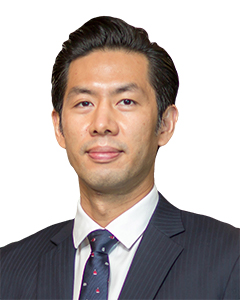Despite the financial difficulties an employer may face amid the covid-19 pandemic, the employer should consider the following issues carefully when terminating any Hong Kong employment relationship with its staff.
Notice periods and ways in lieu of notice – Under the Employment Ordinance of Hong Kong (Cap. 57), a formal advance notice or wages in lieu of notice should be given to the employee for terminating an employment contract, unless the employee is dismissed summarily. For a continuous employment contract with no or after probation period, the notice should be of the contractually agreed period (but not be less than seven days). If the contract does not provide the length of notice, the notice should not be less than one month.
During the first month of probation, either party can terminate the employment without notice or payment in lieu of notice. After the probation period expires, either party can terminate by giving notice of the agreed period (but not less than seven days).
Summary dismissal. An employer may dismiss an employee summarily without advance notice or wages in lieu of notice, where the employee (1) wilfully disobeys a lawful and reasonable order, (2) is guilty of misconduct, (3) is guilty of fraud or dishonesty, or (4) is habitually neglectful in performance of duties. Summary dismissal is a serious disciplinary action and only applies to employees who have committed very serious misconduct or have failed to improve themselves after an employer’s repeated warnings.

Managing partner
LC Lawyers
Payments.
An employee who is employed under a continuous contract may be entitled to these payments on termination of the employment:
(1) outstanding wages owed for the period of employment up to the termination date,
(2) payment in lieu of notice (where applicable),
(3) payment in lieu of any untaken annual leave,
(4) accrued end-of-year payment,
(5) long service payment or severance payment (where applicable), and
(6) other payments under the employment contract. Employers who fail to pay termination payments when due are liable to prosecution and, upon conviction, to a fine of HK$200,000 (US$26,000) and imprisonment for one year.
Severance payment. An employee is entitled to a severance payment if he has been employed continuously for at least two years but is dismissed due to redundancy if (1) the employer closes or intends to close the business, (2) the employer has ceased, or intends to cease, the business in the place where the employee was employed, or (3) the business requirement for the employee to carry out work ceases or diminishes or is expected to cease or diminish.
Severance payment = 2/3 X the employee’s last full month’s salary (the employee may elect to use his average wages in the last 12 months for this calculation) or HK$22,500 (whichever is lower) X number of years of service (a pro-rata amount for any incomplete year). The statutory cap of the severance payment for each employee is HK$390,000. This formula applies to the calculation of both a severance payment and a long service payment. But no employee can receive both the long service payment and the severance payment.
The severance payment can be reduced by the total amount of gratuities paid to the employee based on length of service, or by the then current value of benefits accrued in respect of that employee in a Mandatory Provident Fund scheme or occupational retirement scheme, to the extent that those contributions are attributable to the employer over the same employment period. A severance payment is not payable if the employee unreasonably refuses a re-employment offer, has been dismissed summarily or for a reason other than redundancy.

Associate
LC Lawyers
Long service payment. This is payable to an employee who is dismissed after having been employed continuously for at least five years, resigns on grounds of old age after having reached 65 years of age, or having been certified by a medical practitioner as having become permanently unfit for the role for which the employee was employed. No long service payment is payable if the employee is entitled to a severance payment, unreasonably refuses a re-employment offer in certain cases, or is dismissed summarily.
Protected employees. The Employment Ordinance prohibits:
(1) dismissal of a pregnant employee,
(2) dismissal while the employee is on paid sick leave,
(3) dismissal because an employee has given evidence/information in connection with the enforcement of labour legislation, industrial accidents or breach of work safety regulations,
(4) dismissal for trade union membership/activities; or
(5) dismissal of an injured employee before the parties concerned have entered into an agreement for compensation or before the issue of a certificate of injury assessment.
Employee rights on insolvency. The Companies (Winding Up and Miscellaneous Provisions) Ordinance of Hong Kong (Cap. 32) provides that employees are entitled to payment out of the employer’s assets in preference to other creditors in respect of wages, wages in lieu of notice, accrued holiday remunerations and severance payments.
Takeaway. Employers should comply with their statutory and contractual obligations owed to their employees at all times.
Rossana Chu is the managing partner and Jacky Chan is an associate at LC Lawyers

LC Lawyers LLP is an independent law firm, and the Hong Kong law firm member of the EY global network, in collaboration with other law firm members.
Suite 3106, 31/F One Taikoo Place
979 King’s Road, Quarry Bay, Hong Kong
Tel: +852 2629 1768
Fax: +852 2956 1980
E-mail: rossana.chu@eylaw.com.hk





















